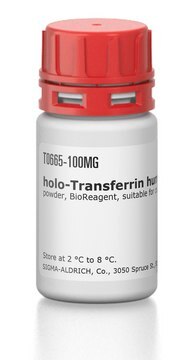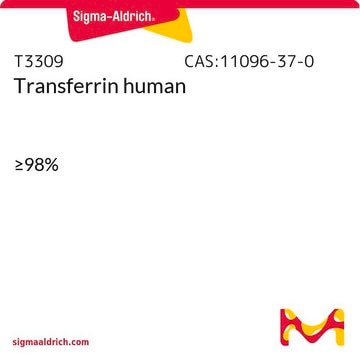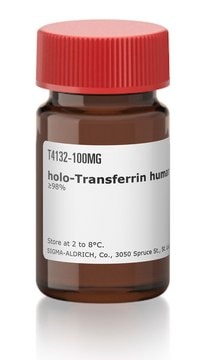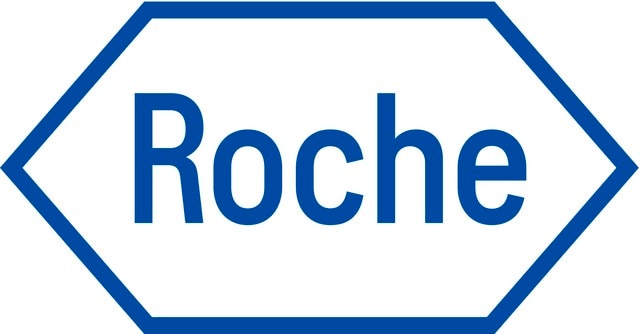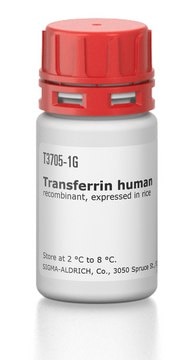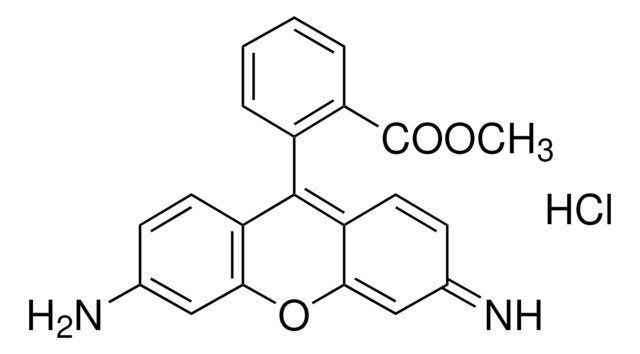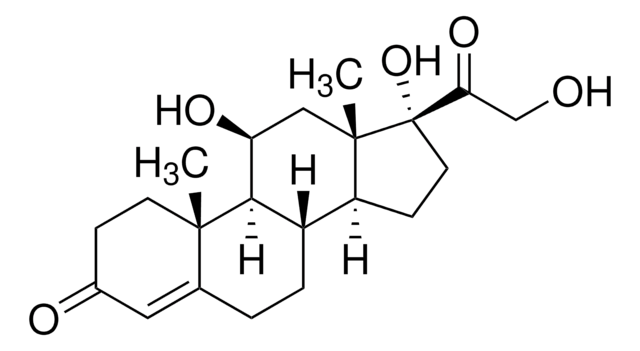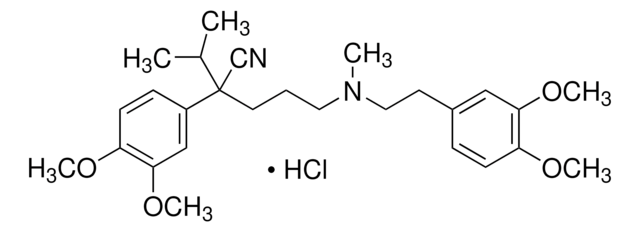T3915
Transferrin-biotin labeled human
lyophilized powder containing sodium citrate
Sign Into View Organizational & Contract Pricing
All Photos(1)
About This Item
CAS Number:
EC Number:
MDL number:
UNSPSC Code:
12352202
eCl@ss:
34058011
NACRES:
NA.83
Recommended Products
Application
Biotin-labeled transferrin is commonly used to monitor transferrin uptake by cells in vitro through addition to the cell culture medium.
Physical form
Lyophilized powder containing sodium citrate
Preparation Note
Prepared from human holo-transferrin, coupled to biotin by an amide bond through an aminocaproyl spacer.
Disclaimer
RESEARCH USE ONLY. This product is regulated in France when intended to be used for scientific purposes, including for import and export activities (Article L 1211-1 paragraph 2 of the Public Health Code). The purchaser (i.e. enduser) is required to obtain an import authorization from the France Ministry of Research referred in the Article L1245-5-1 II. of Public Health Code. By ordering this product, you are confirming that you have obtained the proper import authorization.
wgk_germany
WGK 3
Certificates of Analysis (COA)
Search for Certificates of Analysis (COA) by entering the products Lot/Batch Number. Lot and Batch Numbers can be found on a product’s label following the words ‘Lot’ or ‘Batch’.
Already Own This Product?
Find documentation for the products that you have recently purchased in the Document Library.
Customers Also Viewed
Francesca Guerrieri et al.
BMC genomics, 18(1), 184-184 (2017-02-19)
The Hepatitis B Virus (HBV) HBx regulatory protein is required for HBV replication and involved in HBV-related carcinogenesis. HBx interacts with chromatin modifying enzymes and transcription factors to modulate histone post-translational modifications and to regulate viral cccDNA transcription and cellular
N Akhtar et al.
Molecular biology of the cell, 12(4), 847-862 (2001-04-11)
The establishment of cadherin-dependent cell-cell contacts in human epidermal keratinocytes are known to be regulated by the Rac1 small GTP-binding protein, although the mechanisms by which Rac1 participates in the assembly or disruption of cell-cell adhesion are not well understood.
Dominik P Buser et al.
EBioMedicine, 46, 32-41 (2019-07-25)
Gliomas are the most frequent and aggressive malignancies of the central nervous system. Decades of molecular analyses have demonstrated that gliomas accumulate genetic alterations that culminate in enhanced activity of receptor tyrosine kinases and downstream mediators. While the genetic alterations
Henri-François Renard et al.
Nature communications, 11(1), 1457-1457 (2020-03-21)
While several clathrin-independent endocytic processes have been described so far, their biological relevance often remains elusive, especially in pathophysiological contexts such as cancer. In this study, we find that the tumor marker CD166/ALCAM (Activated Leukocyte Cell Adhesion Molecule) is a
Xiaonan Dong et al.
Nature, 589(7842), 456-461 (2020-12-18)
Autophagy, a process of degradation that occurs via the lysosomal pathway, has an essential role in multiple aspects of immunity, including immune system development, regulation of innate and adaptive immune and inflammatory responses, selective degradation of intracellular microorganisms, and host
Our team of scientists has experience in all areas of research including Life Science, Material Science, Chemical Synthesis, Chromatography, Analytical and many others.
Contact Technical Service